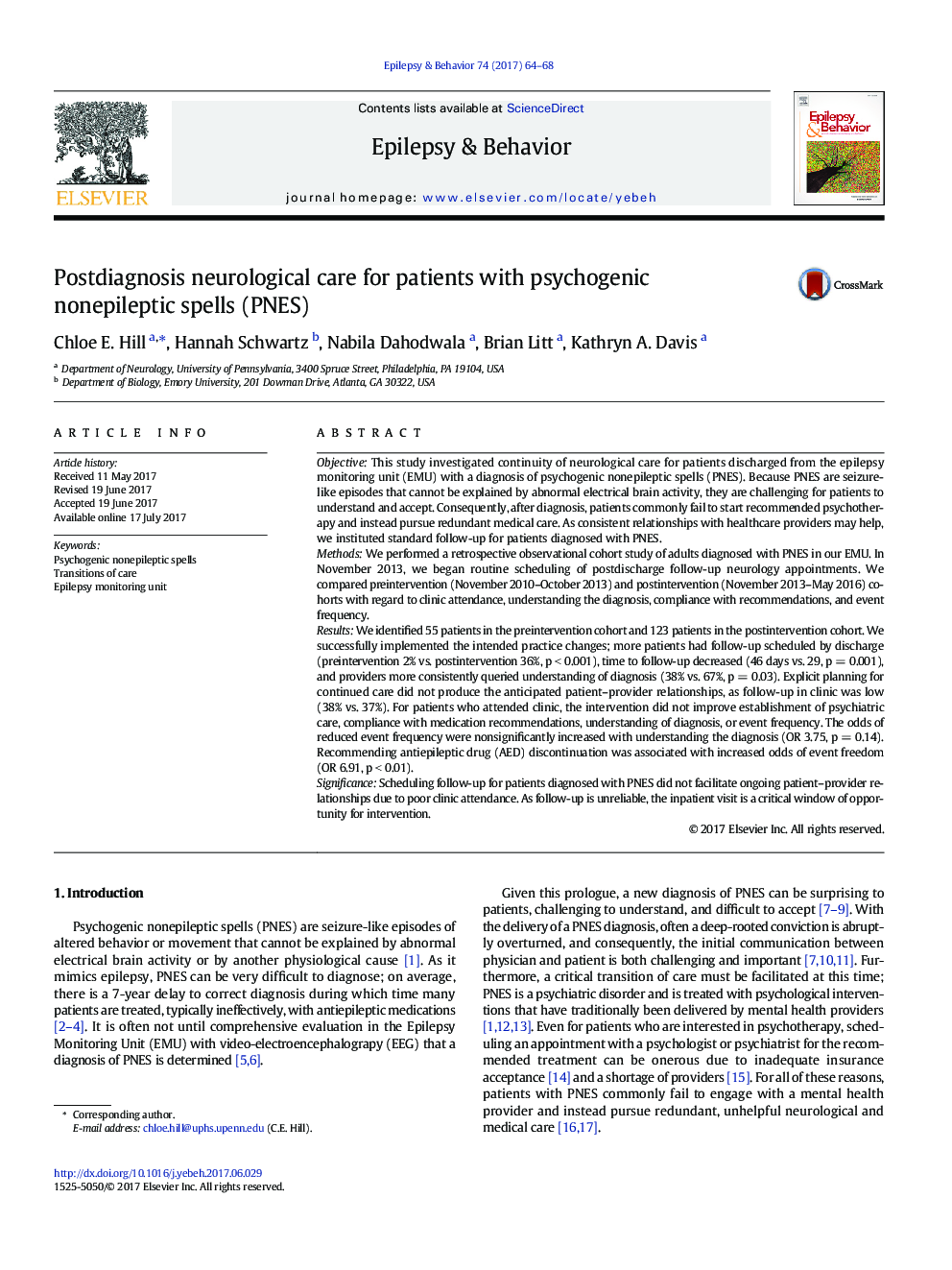| کد مقاله | کد نشریه | سال انتشار | مقاله انگلیسی | نسخه تمام متن |
|---|---|---|---|---|
| 5628212 | 1579819 | 2017 | 5 صفحه PDF | دانلود رایگان |

- We initiated standard neurology follow-up for patients diagnosed with PNES in the EMU.
- Despite provision for continuity of care, only 37% of patients attended follow-up.
- Just over half of patients who were followed up had engaged a mental health provider.
- Due to poor follow-up, the inpatient visit is a key opportunity to impact prognosis.
ObjectiveThis study investigated continuity of neurological care for patients discharged from the epilepsy monitoring unit (EMU) with a diagnosis of psychogenic nonepileptic spells (PNES). Because PNES are seizure-like episodes that cannot be explained by abnormal electrical brain activity, they are challenging for patients to understand and accept. Consequently, after diagnosis, patients commonly fail to start recommended psychotherapy and instead pursue redundant medical care. As consistent relationships with healthcare providers may help, we instituted standard follow-up for patients diagnosed with PNES.MethodsWe performed a retrospective observational cohort study of adults diagnosed with PNES in our EMU. In November 2013, we began routine scheduling of postdischarge follow-up neurology appointments. We compared preintervention (November 2010-October 2013) and postintervention (November 2013-May 2016) cohorts with regard to clinic attendance, understanding the diagnosis, compliance with recommendations, and event frequency.ResultsWe identified 55 patients in the preintervention cohort and 123 patients in the postintervention cohort. We successfully implemented the intended practice changes; more patients had follow-up scheduled by discharge (preintervention 2% vs. postintervention 36%, p < 0.001), time to follow-up decreased (46 days vs. 29, p = 0.001), and providers more consistently queried understanding of diagnosis (38% vs. 67%, p = 0.03). Explicit planning for continued care did not produce the anticipated patient-provider relationships, as follow-up in clinic was low (38% vs. 37%). For patients who attended clinic, the intervention did not improve establishment of psychiatric care, compliance with medication recommendations, understanding of diagnosis, or event frequency. The odds of reduced event frequency were nonsignificantly increased with understanding the diagnosis (OR 3.75, p = 0.14). Recommending antiepileptic drug (AED) discontinuation was associated with increased odds of event freedom (OR 6.91, p < 0.01).SignificanceScheduling follow-up for patients diagnosed with PNES did not facilitate ongoing patient-provider relationships due to poor clinic attendance. As follow-up is unreliable, the inpatient visit is a critical window of opportunity for intervention.
Journal: Epilepsy & Behavior - Volume 74, September 2017, Pages 64-68